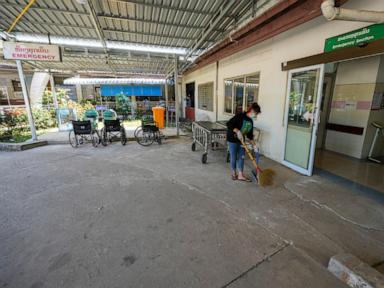
SOUTHERN PINES, N.C. , Nov.
21, 2024 /PRNewswire/ -- Newly released provisional data from the CDC this week shows that drug overdose deaths in the United States are declining, giving hope that there is some improvement in what still remains a nationwide epidemic. The decline- roughly 14% over the previous 12 month period - can likely be attributed to a number of factors such as addiction prevention education, drug disposal solutions, like DisposeRx, and the now widely available overdose-reversing drug, naloxone. In addition to the many illicit drugs on the market, approximately 300,000 opioid prescriptions are dispensed daily in the United States , making the pharmacist a key resource in education and prevention.
By focusing on preventing the access to and misuse of leftover medications, DisposeRx congratulates pharmacists for playing a pivotal role in starting to change patient behavior. Since 2017, over 50 million DisposeRx packets have been distributed nationwide along with important prevention education for patients at the time they are picking up a prescription. In 2021, Mitch Barnett , lead author in "Barriers and motivational factors for engaging in novel opioid and medication disposal-related services in community pharmacies" , explored the pharmacy pilot program in the state of Iowa , where pharmacists were incentivized to provide drug disposal education and tools with every opioid prescription.
The results demonstrated that providing in-home disposal education at the pharmacy counter benefited the local communities, the patients, the environment, and provided a lot of personal satisfaction to the pharmacists themselves. "To prevent overdoses, ultimately with disposal kits, just get medications out of people's hands..
. so it doesn't get into somebody else's hands..
." said a pharmacist participating in the study. "We go the extra mile for our patients so this program fits well" DisposeRx is proud to support pharmacy and all the efforts they've made over the last several years to provide a free solution to their patients.
DisposeRx single use packets are available without a prescription at over 60,000 pharmacy locations nationwide. "It's not enough just to try and reduce the number of opioids prescribed and provide naloxone as an emergency option. People need education to understand how often their unused medications could end up in the wrong hands and how they can prevent that," said DisposeRx President and CEO, William Simpson .
"The real work is in reducing the number of pills available to cause future addictions" The value of the pharmacist as a trusted member of the healthcare ecosystem and their easy and convenient access to patients on a regular basis make them the ideal educator to change patient behavior and create a sustainable decline in overdose deaths. For more information on DisposeRx and how they are supporting the Pharmacist in preventing injury from misused medications, please visit www.disposerx.
com . About DisposeRx, Inc. DisposeRx, Inc.
is located in Southern Pines, North Carolina and committed to solving the problem of prescription drug safety. We aim to achieve new standards in both the education and safety of medication management, by reducing the risks associated with diversion, overdoses, accidental poisonings and death. Our prevention initiatives are where mission and purpose come together making DisposeRx one of the nation's most essential social impact and patient safety companies.
By addressing the problems of prescription medication and drug safety, our team is empowering communities to challenge the opioid crisis head-on. Our belief is that one company can profoundly affect family safety and where innovative solutions can make a real generational difference. SOURCE DisposeRx, Inc.
.














